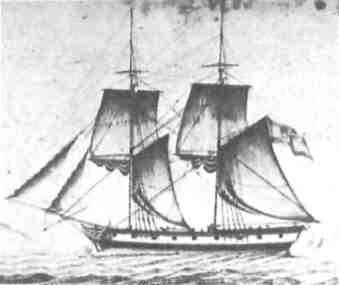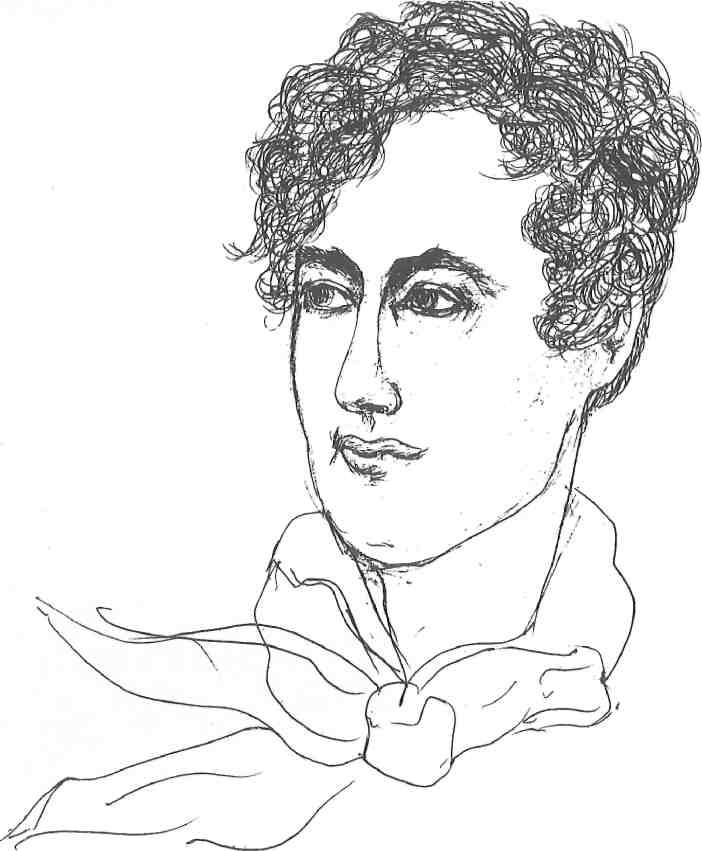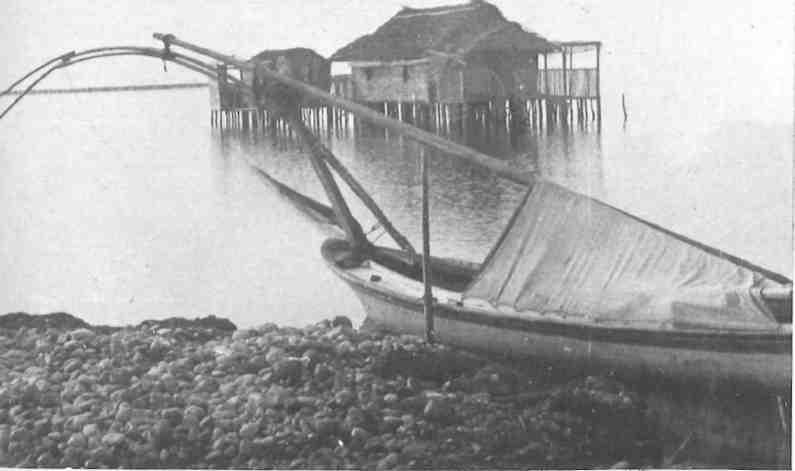From the military came the traditional salute, firing of muskets and artillery salvoes, from the people, applause as wild as the accompanying music, and from Pietro Gamba a tender welcome for his sister’s lover, this slight, boyish figure with the pale, noble face, and dressed in a borrowed red uniform.
A few minutes later, with no public words, both men, brothers in their devotion to each other and the cause of liberty, disappeared into the house prepared for them, and Lord Byron immediately began to receive his guests and to do the task for which he came to Missolonghi.
Who was this man whose presence roused so obvious a sense of hope among those long acquainted with slavery? He was, as Thomas Macaulay wrote in a famous review, nothing less than ‘the most celebrated Englishman of the nineteenth century’, worthy of comparison with the greatest. Two men have died within our recollection, who at a time of life at which few people have completed their education, had raised themselves,, each in his own department, to the height of glory. One of them died at Longwood, the other at Missolonghi’. Macaulay did not need to add that these two giants shared the initials ‘Ν.Β’.

Byron’s countrymen were not alone in recognizing, before his heroic death, the loftiness of his position. Goethe expressed his feelings and debt in a letter to a young friend when Byron was in Missolonghi:
‘Keep us in your memory! And when you reach Genoa and have an opportunity to give news of yourself to that remarkable man, tell h im also about me and mine, and the inexhaustible reverence, admiration and love which we feel for him. Speak out and tell him that we should look upon any of us as most fortunate who might happen to meet him, wherever it might be, on this globe’.
Giuseppe Manzini also understood the twin reasons that made Byron’s achievement unique: ‘It is since Byron that we Continentalists have learned to study Shakespeare and the other English writers. From him dates the sympathy of all the true-hearted amongst us for this land of liberty, whose true vocation he so worthily represented among the oppressed. He led the genius of Britain on a pilgrimage throughout all Europe’.
One hundred and fifty years later we cannot imagine the response of those who looked on Byron except by remembering our own reactions to similar events:
Churchill in Athens, Kennedy in Berlin, de Gaulle returning to Paris. Then we can understand Leicester Stanhope’s simple description of the event written the next day: ‘Lord Byron was received here in triumph’. After all, the man who landed at Missolonghi was the most famous Englishman of his time, of all times the most famous Englishman in Europe. No wonder the sun shone on his arrival on that first Monday in 1824.
For the next five weeks, until the middle of February, Byron was untiring in h is efforts ‘to assist in the regeneration of a nation.’ He recognized that the first step must be the formation of ‘a strong national government, ready to apply the pecuniary resources, when they arrive, to the best objects — the organization of troops, the establishment of internal civilisation, and the preparation for acting defensively now, and on the offensive in the next winter’.

To accomplish these aims, Byron acted both promptly and rightly. He made it clear that he supported no party but the legal government and that he favoured union, by agreeing to supply pay for 500 Suliots, whose chief he became, and by showing himself to be an example of integrity, generosity, and kindness to whomsoever he met. Furthermore, together with Prince Alexander Mavrocordatos and other Greek leaders, he planned and trained for an attack on the castle of Lepanto, Naupactos. This was reportedly an easy prize, especially after the arrival of William Parry and his artillery despatched from England and expected daily, but a prize of great psychological value.
Throughout January, Byron’s statement, Ί have not too much hope of success’ seemed too pessimistic a forecast as he surmounted problems and vexations with the help of money, apparent health, and above all, patience. On February 1, in a mood of sunny optimism he was triumphantly received in Anatolico and served ‘an excellent dinner of fine-fish, and English plum-pudding, and good champagne’. He was never again to be so vividly, so symbolically, reminded of the worlds he had left behind.
However bright February’s beginning, later days were dark as setback followed setback. First, William Parry arrived without Congreve rockets or other means to fulfill his promised role. Then, because of internal jealousies, most of the Suliots were induced to strike and demand impossible terms of Byron and the Greek leaders. Finally, on February 15, Byron became sick. Let him describe that day and the succeeding one:
On Sunday (the 15th, I believe), I had a strong and sudden convulsive attack, which left me speechless, though not motionless — for some strong men could not hold me; but whether it was epilepsy, catalepsy, cachexy, or apoplexy, or what other exy or epsy, the doctors have not decided; or whether it was spasmodic or nervous, etc.; but it was very unpleasant, and nearly carried me off, and all that. On Monday, they put leeches to my temples, no difficult matter, but the blood could not be stopped till eleven at night (they had gone too near the temporal artery for my temporal safety), and neither styptic nor caustic would cauterise the orifice till after a hundred attempts.
With no immediate prospect of success, the expedition an impossibility, and his health precarious, Byron probably asked himself many times as February became March why he had come back to Greece. We can only guess at his answers — was he tired ο f Teresa? was he tired of exile? was he in fact tired of life? One answer will have stood out from the others on account of its directness and simplicity: because he was asked, and by such people and in such a manner that he could not refuse and still remain true to himself. As he wrote to his sister Augusta from Cephalonia:
You ask why I came up amongst the Greeks? It was stated to me that my so doing might tend to their advantage in some measure in their present struggle for independence, both as an individual and as a member of the Committee now in England. How far this may be realized I cannot pretend to anticipate, but I am willing to do what I can.
This was the same man who earlier had said:
For I will teach, if possible, the stones to rise against earth’s tyrants.
The request by the London Greek Committee that he return to Greece was as if England had put aside his past, now recognized his name and reputation, and given him an heroic opportunity to live up to both. Put this way he really had no choice. And so he accepted.
Missolonghi in March, 1824, was a depressing place, the town crowded with unsatisfied and easily roused soldiers. There were false, but nonetheless disturbing, rumours of black plague; and there was the rain, heavy and almost constant. Yet Byron stayed on and endured with outward calm the swamp, fever, and interminable rounds of bickering.
He drilled his faithful company, practised with sabre and foil, rode when he could, wrote cheerful, witty letters, and waited — this time for a’ meeting of Greek leaders organized by Odysseus to take place at Amphissa, where Byron hoped to further the cause of unity and ‘a strong national government’. When the circumstances of the meeting were established, he still waited for the rain to stop and the swollen rivers to recede, so that he might cross the mountains.
Byron was still waiting on April 3, when Missolonghi was threatened with something worse than rain: an attack led by Karaiskakis with the help of disaffected Suliots and a battalion from Anatolico. Ostensibly an affair of honour because of an injury to Karaiskasis’s nephew, it was, in fact, an attempt plotted with the Turkish fleet to get rid of Mavrocordatos. The town was readied for a siege. Even though the weather was better, Byron knew that to leave at such a moment would be interpreted as an act of desertion. And so he stayed, showed his faith in the government, and by April 8, the emergency was over: Mavrocordatos had won, Karaiskasis had fled, and Byron had lost forever the opportunity to leave Missolonghi alive.
By now Byron had been in Missolonghi one week short of a hundred days, a span of time in which others had changed worlds. What had he accomplished? He would probably have answered nothing, and it is true that all his major schemes had failed. But there were other ways that mattered more than Lepanto and Amphissa in which he had succeeded. He had remained uncompromised by politics, he had strengthened the government with support and money , and he had demonstrated what it really meant to be concerned about people. By so doing he had transformed for his age and for the future the notion of a Philhellene from that of a soldier of fortune ‘in search of adventures’,· to that of a disinterested (in the correct meaning of that fine word) patriot.

It is part of the paradox of Byron that the man whose name to many stood at best for rakishness, at worst for profligacy, should at the end win his battles through the austerity and Tightness of his conduct.
On Friday, April 9, Byron received letters from England that greatly cheered him. Two of them he answered. Then, because the weather seemed fair, he went riding. Before he could return, a storm had arisen, and he was caught in it. By the time he reached his quarters, he was soaking wet, having endured in that state a boat-ride of half an hour. Later he experienced shuddering, fever, and ‘rheumatic pains’. Next day, he felt better and rode again, both for the last time. On Sunday he was clearly in great distress and delirious. For the next few days the force of his illness seemed to ebb and flow, but Friday there was no mistaking the gravity of his situation.
Easter Sunday should have been a day of rejoicing in honour of the Risen Christ, but the people of Missolonghi remained silent so as not to disturb his increasing sleep. ‘He continued in this state for four-and-twenty hours; and it was a quarter past six o’clock on the next day, the 19th, that he was seen to open his eyes, and immediately shut them again. The physicians felt his pulse — he was gone!’ Outside, a thunderstorm raged.
In the place and manner of his death, Byron added another chapter of achievement. For Greece he had assured that the question of her freedom was now only one of time; never again would her revolt be an affair to be brushed beneath a chancellery rug. The pessimism of Rhigas’s War Hymn could now give way to the optimism of Solomos’s Hymn to Liberty. For himself he had found a hero’s death, a fit end to the Byronic legend. Henceforth, his deeds would draw men to his words.
On Sunday, May 2, 1824, the crowds of citizens stood silently along the shore; the soldiers fired a last salute in sad respect; and from the quay a ship put out bearing the remains of George Gordon Noel Byron. It is not recorded whether the sun shone that day at Missolonghi.







